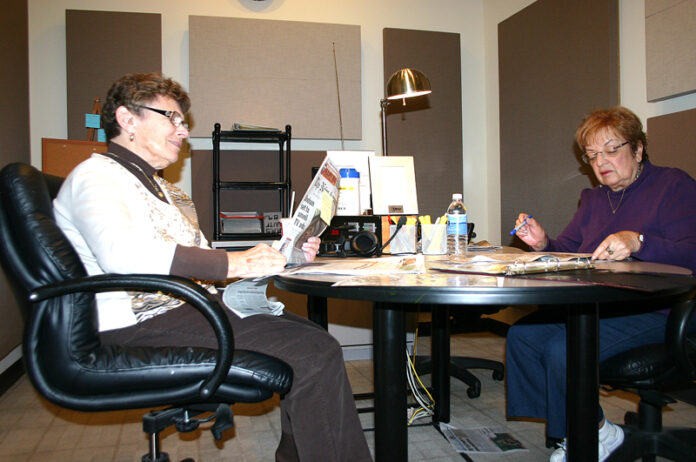
It wasn’t that long ago that families gathered around the radio, listening to soap operas, Westerns, and the news. Nowadays, people are more often gathered around their televisions, iPhones, iPads, or other mobile devices. But there’s still a group of people for whom getting information through the radio is an integral part of their lives. They’re the visually impaired – about 2,000 residents of Central and Southwestern Virginia who get their news and information through the Radio Reading Service. “The majority of listeners are in the Roanoke, Lynchburg and Danville areas;” says Radio Reading Service (RRS) Director Ben Martin.
The service operates out of studios located at WVTF Public Radio in Roanoke.
“The radio reading service provides readings from current newspapers, books, and magazines 24 hours a day, seven days a week on this radio station’s (WVTF) subcarrier.”
“If it’s in the newspaper, if it’s in the book, if it’s in the magazine, then you read it.” The volunteers choose what to read but, “We try to stay with best seller lists, book club lists, that kind of publication; publications that have a fresh copyright.”
A special receiver is needed to receive the broadcast but the RRS provides the receiver at no cost to the listener.
To get the receiver, you can call WVTF at (540) 989-8900 and ask to speak to Ben Martin; you can download the application off the website, wvtf.org, and mail it in, or complete it online.
The RRS, which started more than 30 years ago in the late 1970s, partners with Voice of the Blue Ridge to provide equipment and about 100 volunteers.
One person who has been volunteering her time as a reader for just over a year is Lotty Hebblethwaite from Roanoke. She and fellow volunteer Rita Kaczmarek come to the studios to read the Lynchburg and Danville newspapers once a week.
“I wanted to do volunteer work and it’s something I can do,” says Hebblethwaite. She often wonders about what listeners think of her reading. “It’s taped, so we don’t ever get any feedback.”
“We read local news and avoid the national news; the national news is available to people on all their radios. We do local news, letters to the editor, the editorials, feature stories and a little sports once in a while,” finished Kaczmarek.
She’s been reading 15 or 16 years, since she retired. “It was something I’d heard about other people doing and I decided I like to read, I was a reader at our church, so it just fit in. I just enjoy reading, and it seemed like something I could do.”
“I enjoy doing it and have always liked it.”
Hebblethwaite and Kaczmarek have become friends and have lunch together and other things together because of the Radio Reading Service.
If someone reading this article wants to be a volunteer, Hebblethwaite says,
“I’d recommend it entirely. It’s very satisfying.” What happens if you make a mistake? “Well, you just make a mistake and correct yourself.”
If someone would like to volunteer as a reader, they can call the station and ask to speak to Ben Martin. “We’ll have that person come in and have a brief reading test and then we’ll get them signed up to read.”

